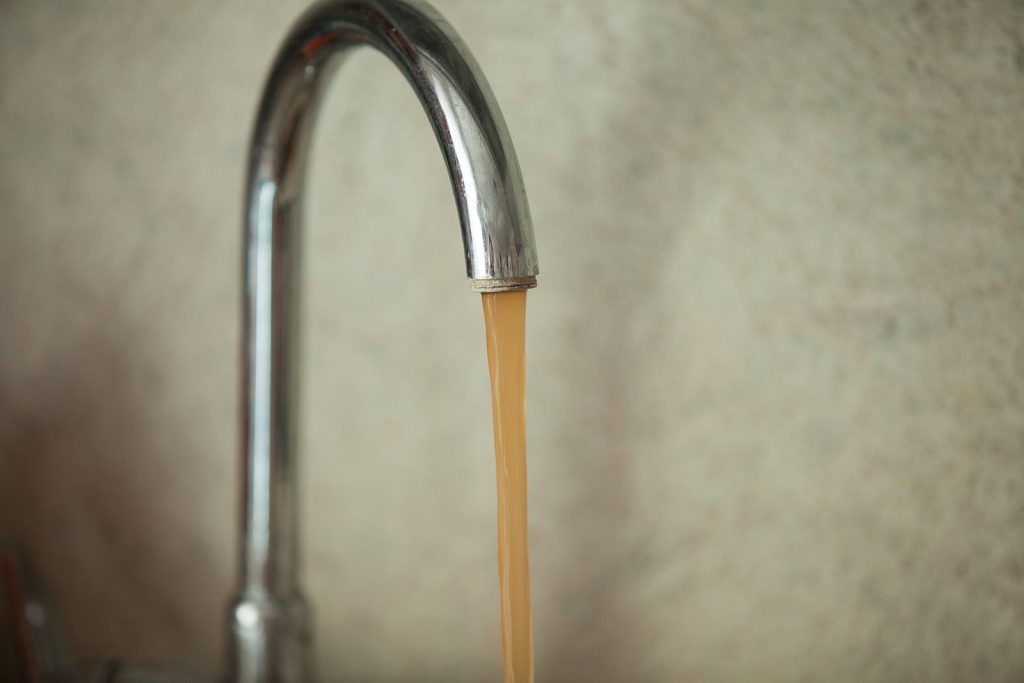If your home is not connected to city water and instead relies on a well, making sure that the water is clean is important. However, well water can sometimes become discolored, raising concerns for homeowners. One of the more alarming issues is dark well water. Understanding the causes and solutions for dark well water is essential to maintaining a healthy water supply.
Common Causes of Dark Well Water
There are multiple reasons why the water in your well may have a darker color. Here are a few of the most common.
Sediment and Mineral Deposits
Over time, sediments and minerals can accumulate in well water, leading to discoloration. Common minerals such as iron and manganese are often responsible for darkened water. These minerals can enter the water from natural deposits in the ground or through corroded pipes.
Organic Matter
Organic material, including leaves, soil, and other debris, can enter the well and cause water discoloration. This is particularly common in wells located near heavily vegetated areas or those with inadequate sealing.
Contamination
Contamination from various sources can lead to dark well water. Agricultural runoff, industrial waste, and septic system leakage are potential contaminants that not only discolor the water but also pose serious health risks. Identifying and addressing these contamination sources is critical for water safety.
How to Diagnose Dark Well Water
Visual Inspection
A preliminary step in diagnosing dark well water is a visual inspection. Observe the water’s color and clarity, noting any changes. While this method is not definitive, it can provide initial insights into potential issues.
Professional Water Testing
Professional water testing is essential for accurately diagnosing the cause of dark well water. Testing can detect the presence of specific minerals, sediments, and contaminants. Regular testing helps identify problems early and ensures the water remains safe for consumption.

Solutions for Dark Well Water
Filtration Systems
To address issues with dark well water, installing a filtration system can be highly effective. Filtration systems can address dark well water by targeting specific contaminants. Sediment filters, for example, are designed to remove particles and sediments that cause discoloration. Iron filters, on the other hand, specifically target iron and manganese, which are common culprits for darkening well water. Activated carbon filters are effective in eliminating organic contaminants and improving the overall taste and odor of the water.
Regular Well Maintenance
Regular maintenance of your well helps to prevent water discoloration while ensuring the overall health and efficiency of your water supply. Annual inspections are conducted by professionals to assess the condition of the well, identify potential issues early on, and ensure compliance with local regulations. Cleaning the well and its surrounding area regularly to prevent debris, sediment, and other contaminants from entering the water supply is also recommended. Pump maintenance will ensure the pump is functioning properly and efficiently, thereby maintaining consistent water flow and quality.
Addressing Contamination Sources
Identifying and eliminating sources of contamination is essential to improving the quality of well water. Septic system repairs will fix leaks or malfunctions that could introduce harmful substances into the groundwater. Adopting agricultural practices such as creating buffer zones between farms and water sources and implementing proper waste management techniques can significantly reduce agricultural runoff.
Preventive Measures to Keep Well Water Clean
Proper Well Construction
Proper construction and placement of a well can significantly reduce the risk of water contamination. Choosing a location that is a safe distance from potential contamination sources will help keep your water clear and clean. It is also important to seal the well properly, preventing any surface runoff entry.
Regular Water Testing
Routine water testing should be conducted to monitor water quality. It is recommended to test well water at least once a year. This proactive approach helps in early detection and management of potential issues.
Protective Measures
Protective measures can help safeguard the well from contamination. Landscaping can be used to direct runoff away from the well. Ensuring good drainage around the well will help to prevent water pooling. Placing a cover over the well will help to mitigate any random debris from finding its way into your water source.
A1 Well Drilling Can Solve Your Dark Well Water
With over four decades of experience, A1 Well Drilling has established itself as a leader in well drilling and water system services in New Jersey. Our team of certified professionals brings hands-on expertise and uses only the highest quality materials and the latest technology. Even if you currently have dark well water, we can help resolve your issues. We are dedicated to keeping your home’s water system functioning flawlessly, providing comprehensive follow-up services to maintain system efficiency and address any concerns. Experience the difference with A1 Well Drilling. Contact us today for a consultation, and let us help get your water back to crystal clear.
Dark Well Water FAQs
What are the common causes of dark well water?
Dark well water can be caused by sediment and mineral deposits, organic matter, and contamination from sources like agricultural runoff, industrial waste, and septic system leakage.
How can sediment and mineral deposits affect well water?
Sediment and minerals such as iron and manganese can accumulate in well water, leading to discoloration. These deposits can come from natural sources or corroded pipes.
What role does organic matter play in water discoloration?
Organic material like leaves, soil, and debris can enter the well, especially in areas with heavy vegetation or poor sealing, causing the water to become discolored.
Why is professional water testing important for diagnosing dark well water?
Professional water testing accurately detects specific minerals, sediments, and contaminants, helping to identify the cause of dark well water and ensure it remains safe for consumption.
What can help get rid of dark well water?
Installing filtration systems, performing regular well maintenance, and addressing contamination sources can effectively resolve issues with dark well water.






